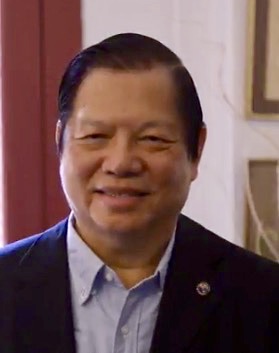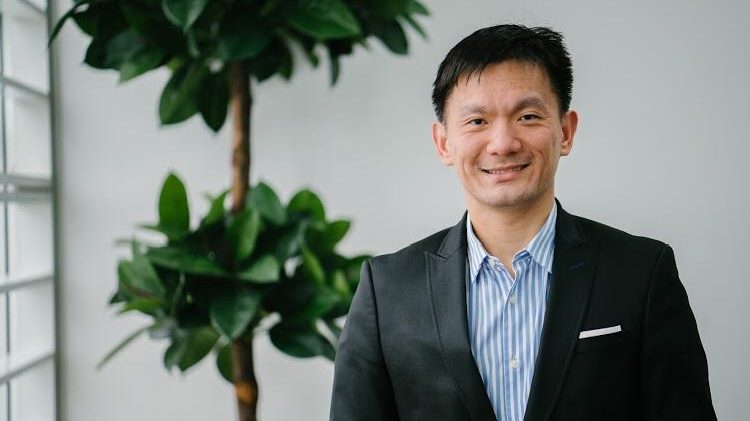
Photo by jesse orrico on Unsplash.
Genesis 1:28 commands us to “rule” the world and subdue it: “And God blessed them, and God said to them, ‘Be fruitful and multiply, and fill the earth and subdue it; and have dominion over the fish of the sea and over the birds of the air and over every living thing that moves upon the earth.'”
In Genesis 2:15, we are told to till the garden: “The Lord God took the man and put him in the Garden of Eden to till it and keep it.”
God’s directive to Adam and Eve is commonly called the “cultural mandate”.
This is a call, according to theologian Gordon Spykman, for man to be an “image of God’s work for the world by taking up our work in the world”.
Well known author, Tim Keller, adds: “It is a call to develop a culture and build a civilisation that honours God.
Work and worship in the Hebrew language share the same root word: Avodah.
Gardening (the original human vocation) is a paradigm for cultural development. A gardener neither leaves the ground as it is, nor does he destroy it.
Instead, he rearranges it to produce food and plants for human life. He cultivates it. The words “culture” and “cultivate” come from the same root (colere to culturare). Every vocation is in some way, a response to, and an extension of the original Edenic act of cultivation.
The vocation, business or work that God has called you to is your high calling to help build a culture that honours God and reflects His Kingdom.
This underscores our role in the marketplace. We are to bring glory and honour to Him through the works of our hands.
Work and worship in the Hebrew language share the same root word: Avodah. Work, therefore, is an expression of our worship when we do it as unto the Lord.
At FGB Gatekeepers Singapore, Gatekeepers are regularly reminded of the marketplace disciples’ mantra: “Our work is our worship, our career is our calling, our posting is our parish, and our position is our pulpit.”
Work as worship
Work is not, as some mistakenly assume, a curse, or the result of the Fall. Work was part of Adam’s and Eve’s activities in Eden before they sinned.
They were to “work” the Garden “and take care of it” (Genesis 2:15). It is an expression of the creativity inherent in human nature made in the “image of God”.
After all, God is continually working, as Jesus pointed out: “My Father is always at his work to this very day, and I, too, am working”. (John 5:17)
Only work that is drudgery is a consequence of the Fall. However, in Christ, we can experience a substantial redemption from drudgery to meaningful, enjoyable work and achievement.
Whatever your job, it is an expression of worship when you do it unto the Lord.
Our work is our worship, our career is our calling, our posting is our parish, and our position is our pulpit.
For the Christian, vocation is not merely a job to earn money; it includes that, but is much more: His vocation is his calling, a sacred mission from God to contribute to the world.
He sees his vocation beyond making a living to making a difference. He is a missionary in the marketplace.
He needs to understand that God has given him special gifts to make a unique contribution to humanity’s task of reversing the effects of the Fall and extending the Lordship of Christ in the world.
A Christian entrepreneur must see his creative enterprise as a mission in itself. The products and services he provides must be seen in the context of enriching the well being and lives of people in his community.
A worker must see his service as part of God’s calling for him to serve the common good.
Failure to recognise this would result in what author and social critic, Os Guinness, remarked: “God has His people where He wants them. The problem is that they are not being His people where they are.”
Agents of change
The primary way the church participates in the “missio Dei” (Mission of God) is through the day-to-day involvement of its members in the life of the Arts, Entertainment and Sports; Business and Finance; Church; Distribution, Media and Communications; Education; Family and Community; Government and Law.
When Christians work in the world, they will either assimilate its culture or they will become agents of change.
Underlying every culture are values. If God’s Kingdom is not at the centre of the culture, then the world’s values will predominate.
When business people recognise that business is mission, they will bring a Kingdom perspective to their enterprise. Business corporations which adopt Kingdom culture see themselves as responsible stewards of God’s resources and seek to align their interests beyond that of just shareholders only but also with that of stakeholders such as employees, the environment, community and nation.
God has given us special gifts to make a unique contribution to extending the Lordship of Christ in the world.
Very often believers think of Apostle Paul’s “tent making” just as a means to provide for his missionary or evangelistic activities. A closer examination will reveal that Paul viewed his trade or vocation as integral to his identity and calling.
Tent making was central to his mission. Paul was a missionary but his trade was not mutually exclusive or compartmentalised from his mission. The two roles intertwined, and he was a tentmaker with the intention of the Great Commission.
Just as Paul did not wander into the marketplace, he did not simply engage in tent making in desperation to pay for his needs.
Using his trade was intentional, not expedient. Paul purposely entered the marketplace and used his trade to reach those in it. Tent making provided him an opportunity to preach the Gospel in the marketplace.
In Acts 18:3, we read that Paul went to see Aquila and Priscilla who were of the same trade and to stay and work with them.
And in Acts 17:17, we are told that he “reasoned … in the marketplace daily with those who happened to be there”.
Many of the people he met in the marketplace would invariably be his customers and suppliers.
Marketplace ministry mentor, Paul Stevens, cites banking executive Sandra Herron’s helpful description of the threefold ministry of prophet, priest and king, at work in her industry: “The prophet helping organisations discover what God intends for them to become, the priest caring for people and serving as a model, and the king acting as a faithful steward of people and resources.”
Being an excellent … servant?
When we recognise our vocation as God’s calling for our lives, we will be motivated to excel in our work.
1 Corinthians 15:58 remind us to be “always excelling in the work of the Lord, because you know that in the Lord your labour is not in vain.”
Colossians 3:23 reminds us that: “Whatever work you do, do it with all your heart. Do it for the Lord and not for men.”
When believers work with excellence and distinction, they not only glorify God but bring cultural transformation in the workplace and the community. Culture transformation is not about exerting control. It happens when believers let the Gospel change how they do their work, and that means they work for others rather than for themselves.
The exercise of “rulership”, as expressed in the cultural mandate, is about servanthood and that can only happen through the power of the Holy Spirit who enables God’s people to overcome their humanness as selfish beings and be others-centred.
As Tim Keller says: “The most powerful way to show people the truth of Christianity is to serve the common good.”
We are also reminded in Jeremiah 29:7 to “seek the welfare of the city”.
“Whatever work you do, do it with all your heart. Do it for the Lord and not for men.” Colossians 3:23
A Gallup poll conducted some years ago ranked Singapore amongst the few countries to have one of the world’s highest proportions of employees described as “not engaged” – meaning they lack motivation and are less likely to invest effort in organisational goals.
Seventy-six percent of Singaporean employees surveyed are in this category. Another 15% are classified as “actively disengaged”, that is, they are unproductive and potentially hostile to their organisations; these are the ones who would, for instance, spread negativity to co-workers.
With 91% of Singaporean workers either “not engaged” or “actively disengaged”, it leaves the remaining 9% classified as “engaged” at work, that is, being emotionally invested in and focused on creating value for their organisations every day.
In other words, if we see an organisation as a boat, roughly one out of ten workers in Singapore is actively rowing the boat to its desired destination, seven or so are indifferent, rowing when they feel like it and two are actually trying to sink the boat.
If true, this does not auger well for Singapore workers, many of whom are believers. It reflects a lack purpose in life and in the work they are doing. They do not understand their calling.
As Christians, we are called to live lives that reflect the values of God’s kingdom in our personal lives, family life, in the workplace, in our relationships, and in all other spheres of life.
Matthew 5:14-16 reminds us: “You are the light of the world. A city that is set on a hill cannot be hidden. Nor do they light a lamp and put it under a basket, but on a lampstand, and it gives light to all who are in the house. Let your light so shine before men, that they may see your good works and glorify your Father in heaven.”
However, we cannot be light in a dark world in our own strength or in our own power. It is only through the power of the Holy Spirit that we can be salt and light.
This article was first published under the title “Understanding your calling: A reflection on work and culture” by The Fire Report: FGB Gatekeepers Singapore and is republished with permission. You can read the first part of the article here.
We are an independent, non-profit organisation that relies on the generosity of our readers, such as yourself, to continue serving the kingdom. Every dollar donated goes directly back into our editorial coverage.
Would you consider partnering with us in our kingdom work by supporting us financially, either as a one-off donation, or a recurring pledge?
Support Salt&Light




